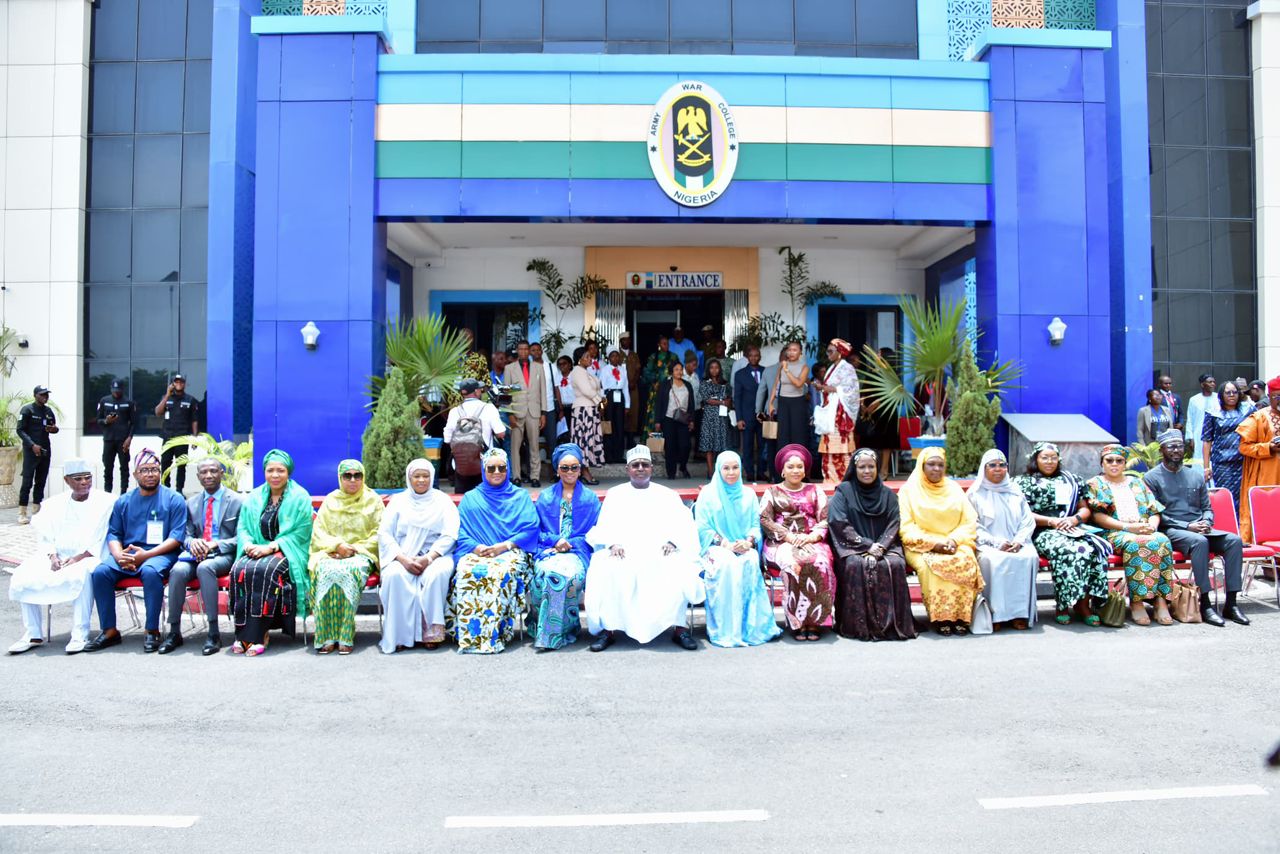BREAKING: Successful Drug War ‘ll Promote Tinubu’s Renewed Hope Agenda, Say Govs’ Wives

The Nigeria Governors’ Spouses Forum (NGSF) has said that the success of the ongoing efforts by the National Drug Law Enforcement Agency (NDLEA) against the menace of substance abuse and illicit drug trafficking will lead to the actualisation of the Renewed Hope Agenda of the President Bola Tinubu administration.
The wives of state governors declared this as part of their resolutions in a communique read by the First Lady of Ogun State, Mrs. Bamidele Dapo Abiodun, on behalf of the chairperson of the Forum and First Lady of Kwara State, Prof. (Mrs.) Olufolake Abdulrasaq, at the end of a training workshop organised by the NDLEA in collaboration with the NGSF in Abuja on Tuesday.
“Recalling the importance that successfully tackling the drug scourge will remarkably ensure that the Renewed Hope Agenda of the President is achievable for holistic national development required to birth a Nigeria of our collective dreams,” they said.
The Forum expressed concern “that Nigeria presently faces an alarming drug use situation, which has heavily pervaded every sphere and strata of communities and consequently endangering the wellbeing and security of individuals, families and communities within the country.” It reiterated that States play critical roles as stakeholders in addressing national drug challenges by implementing localised strategies, fostering cross sector collaboration and aligning with internal frameworks, towards responding to community needs and contributing to coordinated national responses.
The Forum endorsed the “outstanding efforts of NDLEA under the leadership of Brig Gen Mohamed Buba Marwa against drug use and trafficking with phenomenal national and global success records in the areas of arrests and seizures, prosecutions and convictions, prevention, treatment, and rehabilitation among others.”
In its resolutions, the Forum acknowledged “with urgency the need for the First Ladies to use their good offices to liaise with the State Governors in facilitating the establishment, of State Drug Control Committees (SDCCs) in the thirty-six states of the country, beyond the nine functional committees currently in existence.”
It said the laudable partnership between NDLEA and the NGSF has yielded significant dividends and achieved notable milestones over time, adding that “urgent concerted and pragmatic efforts are required considering the complex public health issues and security challenges, the country is witnessing, which is fuelled largely by the use of drugs.”
The Forum called on the Federal Government and State governors to declare state of emergency on drug use and the illicit trafficking pandemic with a view to accepting national ownership of the drug problem and mobilising resources to dismantle the menace.
They also resolved to ensure that “Local Government Drug Abuse Committees are established in line with the ‘bottom to top’ approach, a core principle of the NDCMP, in ensuring that tailored Drug Demand Reduction activities are further cascaded to the wards and rural communities, areas highly vulnerable to the drug problem.”
According to them, “the Drug Abuse Prevention Treatment and Care (DPTC) programmes in States continue to serve as Forum project, and to be chaired by the first ladies of the State, as additional tools for addressing community-based drug prevention, use and treatment modalities to promote community health, development and overall wellbeing.”
They highlighted the importance of the SDCCs in expanding its scope by seeking result-oriented partnerships with the private sector, civil society organisations and other key stakeholders in the development and implementation of community-based projects, through the enhancement of resources, facilities and infrastructure for holistic outcomes across the States of the Federation;
They also reaffirmed “the need for active collaboration with, and providing vital supports to NDLEA Commands in States with a view to achieving more effective, integrated and enduring responses to drug challenges in diverse community settings by combining enforcement, prevention, treatment and recovery efforts.”
The Forum harped on “the need to create and promote sustainable development initiatives by encouraging health and people centered prevention, treatment, social support, stigma reduction, and inclusive policies that tackle root causes and ensure long term community and health and resilience.”
